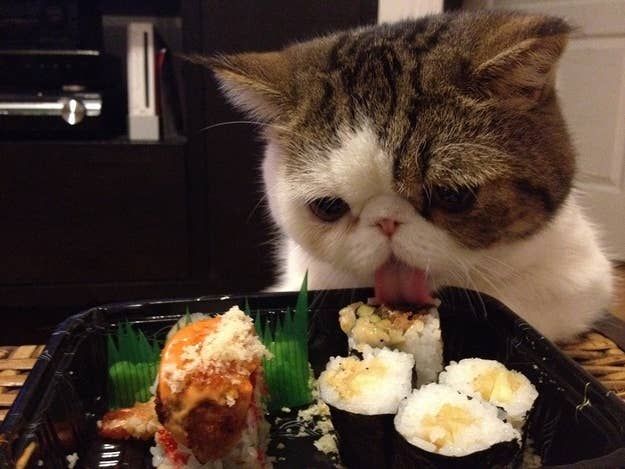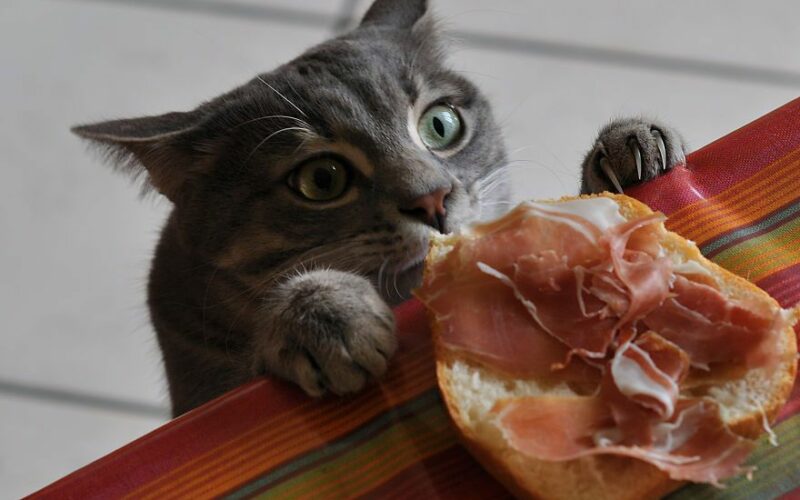Cats have unique nutritional needs that must be satisfied by their diet. These needs differ from those of humans. Some people might find it strange that not all of the food consumed by cats can be consumed.
In the worst situation, some human foods may ill your cats. But we’ll focus on ten things that cats can consume. Simply said, cats are carnivores. They must consume animal protein for a robust heart, clear vision, and a healthy reproductive system.
As a cat owner, you have to find out which foods are poisonous and which nutrients your cat needs before sharing your plate with them. Additionally, cat owners should be aware that because cats are obligate carnivores, they should never be fed a vegetarian diet because they need nutrients that can only be found in animal sources. A fully balanced commercial diet created by a board-certified veterinary nutritionist is the easiest and most convenient approach to satisfy a cat’s nutritional needs.
10 Human Foods Cats Can Eat You Need To Know
1. Fish
While cats may not have evolved to consume fish, adding fish to their diet can greatly boost the quality of their food. If your cat isn’t allergic to fish or seafood in general, you can feel safe giving it fish as a treat on occasion. If you want to ensure your cat stays healthy, you should feed it only the highest quality fish and first see your vet to find out what kinds of fish they should not eat. But oily seafood like tuna and mackerel can improve your pet’s vision, joints, and cognitive function.
2. Meat
Meat is the primary source of nutrition for cats because of the high levels of animal protein and amino acids it contains. The protein in meat is beneficial for a cat’s heart, eyesight, and reproductive health. You may give your cat any cooked meat as long as you remove all the bones and ensure there are no seasonings, spices, or sauces in the meat. Avoid giving your cat any kind of cooked or uncooked meat. Avoid feeding your cats salty foods like bacon and sausages. Ensure the meat is fully cooked (never feed a cat raw meat) and the bones have been removed before feeding it to your cat.
3. Oatmeal
Oats are great for your cat since they are full of healthy nutrients, including fiber, iron, and protein. If they are having skin problems, you can apply a topical solution to help. Raw oats, like those found in various commercial cat foods, are considered safe for cats. Oatmeal is a more approachable food for cats, but it should be served solely in water, not milk.
4. Bananas
Bananas are a nutritious snack that won’t harm your cat if provided in moderation. Bananas, or even half a banana, are bad for your cat. What you should do is offer her a bite of your banana. Although the high sugar content of bananas may lead to stomach upset in cats, it is still fine to feed them in moderation. Let them be on their own if they decline, though.
5. Spinach
You may feed your cat spinach as a treat or incorporate it into its regular diet without worrying about any negative effects. Although it’s a good source of vitamins, it shouldn’t be fed to cats that have urinary or renal issues. Naturally, all of these things should be offered in moderation as rewards for good behavior and as part of a healthy diet. If you have questions or concerns about what your cat should or should not be eating, see your veterinarian about the best diet to give your cat on a regular basis.
6. Cooked eggs
Eggs are safe for feline consumption. A fully cooked egg is a healthy snack for cats. Eggs are a great source of protein and other nutrients and are easily absorbed by the body. Unless they’re uncooked, cats can eat eggs scrambled, boiled, or any other way you choose. However, you should keep raw eggs out of their reach since they may induce diarrhea or bacterial overgrowth.
7. Cheese
Mice aren’t the only ones that like and appreciate cheese. Although many feline friends have lactose intolerance, cheese may be a healthy addition to your feline’s diet. However, if given to a cat, large amounts of milk or other dairy products might lead to gastrointestinal problems. Dairy is one of the most debated human foods for cats, despite the fact that many cats enjoy it. Although some felines have little trouble digesting dairy, some can’t tolerate even small amounts of cheese, so be careful if you decide to treat your cat to some.
8. Bread
Cats may safely nibble on plain baked bread. Still, they should avoid flavored bread like those that may include garlic, fruits, or even chocolate. However, you need to be careful not to give them anything with a strange flavor mixture because it might include a common cat allergen.
9. Rice

Your cat may feel fuller and have less loose stools if they eat rice due to the complex carbs and fiber it contains. The nutritional value of white rice for cats is lower, but it can be fed in very tiny amounts as a supplement to the cat’s regular diet. But Cats shouldn’t have rice too often since eating too many carbs at once might make them sick.
10. Carrots
Carrots, if cooked in the right way, are safe for cats to consume. You must boil any carrots given to your cat. Carrots are beneficial to cats in small doses due to its high vitamin content.
Final thought
There are numerous human food products that still need to pass peer-reviewed research to evaluate their toxicity in cats, which is why it is crucial to record and distinguish the meals we provide to our felines.
However, a lot of human foods are also widely regarded as safe for cats to consume. The Clinical Nutrition Service warns that even healthy meals can cause unexpected side effects, so keep an eye out for your pet showing indications of digestive issues after ingesting a new food. A smart approach is to introduce one new dish at a time so as to be able to easily recognize the one that doesn’t settle well with your cat.
Further Reading
